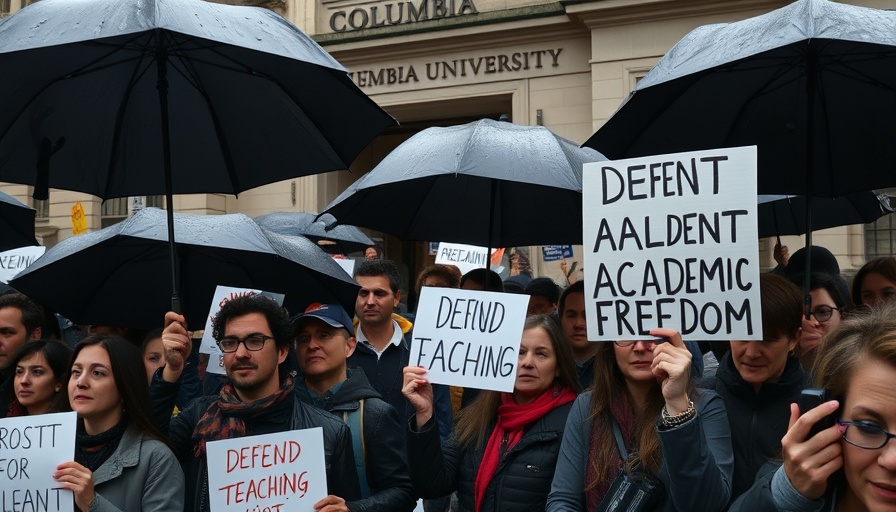
A Legal Rift: Professors vs. the Trump Administration
In a striking turn of events, a group of professors from Columbia University is taking a stand against the Trump administration over a contentious overhaul that threatens the very fabric of academic independence. This lawsuit highlights the ongoing struggle between government authority and institutional autonomy, raising vital questions about freedom of expression and the direction of higher education in America.
What Sparked the Lawsuit?
The professors are claiming that administrative changes proposed by the Trump administration could lead to a chilling effect on academic freedom, impacting everything from research priorities to faculty hiring. The core of the grievance lies in concerns that the reforms are not in alignment with academic values and autonomy crucial for maintaining a vibrant educational environment.
Addressing Concerns About Academic Freedom
Academic freedom is more than a buzzword; it is considered essential for fostering innovative thought and rigorous inquiry. Critics argue that any governmental oversight or influence over university operations could stifle critical thinking—one of the bedrocks of higher education. With many universities already navigating political pressures, the implications of this lawsuit extend far beyond Columbia.
The Broader Context in Higher Education
This legal battle occurs against a backdrop of rising concern over academic integrity and independence across U.S. campuses. With mounting pressures from various political fronts, educators and academic institutions must tread carefully—as they risk being caught in a vortex of political chess games. Examining the historical context, universities have faced similar threats in the past, but today’s climate feels particularly acute due to the polarization in public discourse.
The Implications for Future Students and Faculty
What does this mean for the future of higher education? If successful, this lawsuit could set a significant precedent that strengthens the university's autonomy from governmental interference, safeguarding a space where free inquiry can thrive. However, if the administration prevails, it may signal a shift in how educational institutions are governed, potentially undermining the role of universities as free-thinking entities.
What Happens Next?
The lawsuit is in its early stages, but reactions from various stakeholders indicate deep divisions. Some support the push for reform, citing a need for accountability in higher education, while others warn that such reforms could compromise the core values of academic institutions. As the case unfolds, it will likely become a touchpoint for discussions about education policy and governance in the U.S.
Legal and Social Ramifications
This lawsuit could reshape not just policies at Columbia but also influence practices at colleges nationwide. Faculty members are closely watching as they examine their roles and responsibilities in the changing landscape of higher education. Legal experts opine that the outcomes could clarify the boundaries of governmental oversight in educational institutions, which may lead to either reinforced protections for faculty or, conversely, stricter controls by administrations.
A Call to Mobilize for Academic Integrity
The legal battle over Columbia’s academic independence is significant for all universities. It prompts educators, students, and community members to advocate for preserving academic freedom as a fundamental pillar of education. Commentary from higher education advocacy groups suggests organizing workshops and discussions around this issue to inform and energize the community.
The Importance of Staying Informed
For anyone concerned about the future of education, keeping abreast of developments in this case is crucial. As discussions around academic freedom intensify, informed engagement will be key to understanding how these legal decisions shape educational governance going forward.
On your next read, remember the value of remaining engaged in such pivotal issues; the future of education may depend on it.
 Add Row
Add Row  Add
Add 



Write A Comment